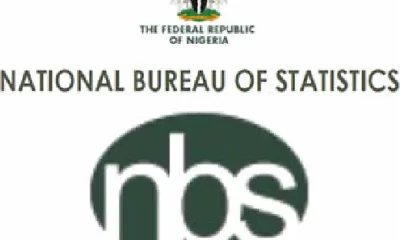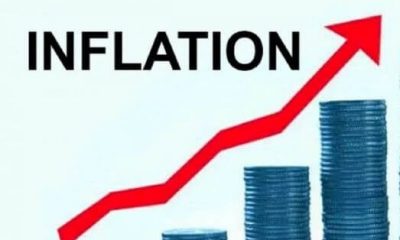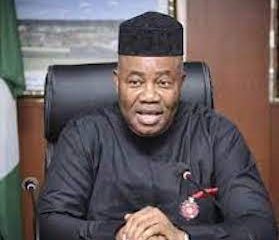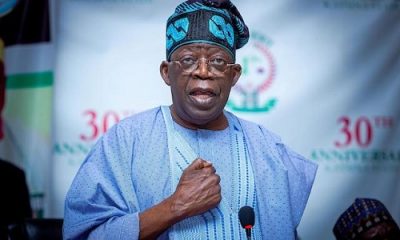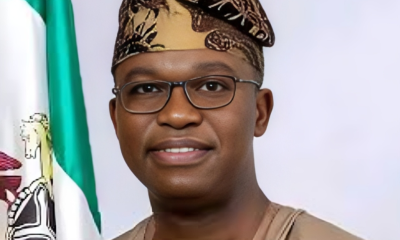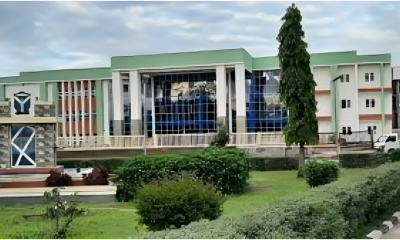BUSINESS
Near Term Inflation Outlook: Bleak Prognosis
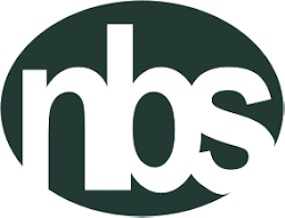
By Uche Uwaleke
The public holidays provide an opportunity to reflect on the capital market and economy in general. One macroeconomic indicator that readily comes to mind is Inflation rate which is one of the most closely watched economic metric by investors.
A few days ago, the National Bureau of Statistics reported a slowdown in headline inflation for the 3rd consecutive month with June inflation rate printing at 17. 75%.
Although, still elevated and way higher than the CBN’s upper band of 9%, it was a continuation of the slowdown in headline inflation which began in April 2021.
Be that as it may, downside risks to inflation outlook suggest an end to the current disinflation soon. A reversal may kick-in as early as July.
Barring base effects, which apparently played a major role in the downward trend in view of successive high inflation rates of 2020, factors likely to cause a spike in inflation rate for July include increased demand witnessed during the festive period, devastating impact of flooding reported in parts of the country, increased FAAC distribution to tiers of government of circa N733 billion and high exchange rate.
All these, in addition to legacy issues such as insecurity, transportation bottlenecks, high fuel and electricity tariffs, will weigh on commodity prices especially food in July.
Indeed, it is easy to predict the direction of prices (inflation, interest rates and Exchange rates) in the coming months given already known exogenous and endogenous factors.
Last Sunday for example, OPEC+ Ministers agreed to increase oil supply with effect from August in addition to new output quota. Expectedly, basket crude oil prices fell on Monday by circa $2 on average.
Across the globe, there are concerns over demand outlook amidst the spread of COVID’19 delta-variant.
In the US, vaccination progress at nearly 65% of the population is emboldening the Federal Reserve along the path of interest rates normalization.
All these have grave implications for capital flows, exchange rates and by extension inflation in Nigeria.
Back home, the passage of the Petroleum Industry Bill and consent of the National Economic Council for full deregulation of the downstream petroleum sector; fiscal surprises expected from the increase in FAAC distribution on account of naira devaluatiom and strong revenues especially from Petroleum Income Tax will all combine to influence inflation trajectory in the months to come.
Other factors include the approval of supplementary budget of nearly N1 trillion by the National Assembly chiefly for defense spending; the increase in government borrowing threshold by the DMO from 25% to 40% in relation to Debt to GDP as well as the fast depletion in foreign reserves and its consequences for Exchange rates stability.
It goes without saying that growing fiscal imbalance following more borrowing headroom will knock-on interest rates and slow down equities market with portfolio rebalancing in favour of fixed income Securities.
Without prejudice to likely impressive corporate results for H1 2021, a rebound in the stock market may take some time.
Against this backdrop, the MPC of the CBN will likely hold rates again this month, perhaps for the last time this year.
With rising inflation and increasing pressure in the forex market, the CBN may be armtwisted into changing current accommodative monetary policy stance to rein-in inflation and stabilise Exchange rates.
This may be accompanied by another upward adjustment in Exchange rate (naira devaluation) in pursuit of rates unification. This change in policy stance may happen as early as September or in November 2021 during the last scheduled meeting of the Monetary Policy Committee.
The way forward is to reduce the ability of government to engage in fiscal surprises by building buffers using Federation account revenue in excess of N640 billion as earlier agreed to by members of FAAC.
Currently, Excess Crude Account record is a paltry $60.8 million which puts the country in a precarious situation in the event of another oil price shock.
Moreover, liquidity mop up operations undertaken by the CBN often come at great costs.
As things stand now, it would appear that foreign loans should be preferred to domestic loans for the purpose of financing the capital component of the budget.
This is especially so if they are sourced from Multilateral and Bilateral windows considered largely concessional. Such must not include Eurobonds or commercial loans from the International capital market.
On balance, I think the uptake of more foreign than domestic loans is better for the economy at this time without undermining the impact of currency risk.
In the first instance, it will provide temporary relief to external reserves attrition, BOP position and forex market liquidity.
In contrast, continuous domestic borrowing by the government drives up interest rates and crowds out the private sector.
Worse still, using such proceeds to finance dollar-denominated capital components of the budget such as defense spending only draws blood from external reserves and weakens the ability of the CBN to intervene in the market.
Little wonder, the country’s foreign reserves is said to be depleting at a fast rate.
All said, inflation outlook in the near term is bleak. The 2021 budget projects inflation rate to come in at 11.95% by December. This is most unlikely- possibly sometime in 2022.
It bears repeating that given the major drivers of inflation in Nigeria, the government has a major role to play in line with the Fiscal theory of the Price Level. This calls for a strong handshake between the fiscal and monetary authorities.
*Prof Uwaleke is the Head of Banking and Finance Department, Nasarawa State University, Keffi
Economy
World Bank Cuts Global Growth Forecast to 2.3% for 2025

Global economic growth is projected to slow to 2.3 per cent in 2025 due to mounting trade tensions and persistent policy uncertainty, according to the World Bank’s latest Global Economic Prospects report.
A statement from the bank’s Online Media Briefing Centre on Tuesday noted that the new forecast was nearly half a percentage point lower than the rate projected at the beginning of the year.
The report indicated that the slowdown would mark the weakest non-recessionary global growth since 2008.
“The turmoil has resulted in growth forecasts being cut in nearly 70 per cent of all economies, across all regions and income groups,” the report states.
In spite of the gloomy outlook, a global recession is not anticipated. However, if current projections hold, average global growth in the first seven years of the 2020s would be the slowest of any decade since the 1960s.
Indermit Gill, the World Bank Group’s Chief Economist and Senior Vice-President for Development Economics, warned of deepening stagnation in the developing world.
“Outside of Asia, the developing world is becoming a development-free zone. It has been advertising itself for more than a decade,” he said.
Gill noted that growth in developing economies had declined steadily, from 6 per cent annually in the 2000s, to 5 per cent in the 2010s, and to under 4 per cent in the 2020s.
This trend mirrored the slowdown in global trade, which fell from an average of 5 per cent in the 2000s to under 3 per cent today. Investment growth had also weakened, while debt had surged to record levels.
The report projected that growth would slow in nearly 60 per cent of developing economies in 2025, averaging 3.8 per cent before a modest rise to 3.9 per cent in 2026 and 2027.
The report added that more than a full percentage point below the average of the 2010s.
“Growth in low-income countries is expected to reach 5.3 per cent in 2025, a 0.4 percentage point downgrade from earlier forecasts.
“Tariff hikes and tight labor markets are expected to keep global inflation elevated, with a projected average of 2.9 per cent in 2025, still above pre-pandemic levels.”
The World Bank warned that slowing growth would hinder efforts by developing economies to create jobs, reduce poverty, and close the income gap with advanced economies.
“Per capita income growth in these economies is forecast at 2.9 per cent in 2025, 1.1 percentage points below the 2000–2019 average.
“Assuming developing countries (excluding China) maintain a GDP growth rate of 4 per cent the forecast for 2027, it would take them about two decades to return to their pre-pandemic growth trajectory.”
Still, the report noted that global growth could rebound more quickly if major economies reduced trade tensions.
It said that resolving current disputes and halving tariffs could boost global growth by 0.2 percentage points over 2025 and 2026.
In response to rising protectionism, the World Bank urged developing economies to diversify trade, pursue strategic partnerships, and engage in regional agreements.
Given constrained public resources and growing development needs, policymakers are encouraged to mobilise domestic revenue, prioritise spending for the most vulnerable, and enhance fiscal management.
To drive sustainable growth, the report emphasised the need to improve business environments, expand productive employment, and align workforce skills with market demands.
Finally, it highlighted the importance of global cooperation in supporting the most vulnerable economies through multilateral initiatives, concessional financing, and targeted relief for countries affected by conflict.(NAN)
Agriculture
Sallah: Ram Traders Lament Rising Preference to Cows

Some ram traders in Lagos State have lamented the preference for cows to rams by Muslim faithful this 2025 Eid Kabir celebration.
The traders disclosed this in interview on Thursday in Lagos.
The traders said that most people prefer to buy cows than rams because of the size and the fact that five families could buy and share for the celebration.
“A ram trader, Mr Ibrahim Hassan, at the Lawanson area of the state, said patronage has been decent, but with an interesting twist.
“The patronage this year is not bad, but I have noticed that people are buying more cows than rams. I believe the reason behind this shift is that cows are more economical and offer better value for money.
“When families or even groups of friends come together, they can share a cow and still fulfil the sacrifice. That way, instead of each person buying a ram for over N500,000, they split the cost.
“The cheapest cow you can get right now is around N800,000, while the cheapest ram starts at about N550,000. Prices also vary depending on the size and weight of the animal.
“I have contacted my sources for more cows, but the market price has gone up since last week. It’s a volatile market, and prices can change quickly,” Hassan said.
Also, Mr Shakiru Gbadamosi, another ram seller at Lawanson, said he noticed that “people are weighing their options this Sallah, and they have been buying more of cows”
“I was surprised to see some buyers turning to cows, and this trend has been on for weeks. Although many still prefer rams for Sallah because it’s about tradition and religious significance.
“The ram is the symbolic animal for the sacrifice, and that’s not something easily replaced.
“Prices have gone up this year, a decent ram now costs between N550,000 and N700,000 depending on the size and breed. But despite that, the demand remains steady.
“Some people have been buying younger rams because they are less expensive but still acceptable.
“The younger rams are sold for between N130,000 and N250,000,” Gbadamosi said.
A buyer, Mr Folajimi Aderibigbe, who confirmed the trend, said buying a cow seems like a better option.
“We are a family of eight, and instead of buying two small rams, we joined with my brother-in-law and bought a cow. It cost us N950,000, but we split it. Everyone still gets to perform their sacrifice and save money.
“Traditionally, rams are the preferred animal for Eid Kabir (Sallah). However, economic realities have changed things, and we must find a way to adapt,” he said.
In a related development, vegetable oil traders said they have observed increased patronage due to the Sallah celebration.
Mrs Linda Nwachukwu, a cooking oil trader at the Lawanson Market, said the demand for cooking oil had increased because of preparations ahead of Sallah.
“The celebration usually increases the demand for groundnut oil. Consumers have been stocking up oil since last week, especially now that there are few days to Sallah.
“Cooking oil prices have risen, but it is cheaper than last December, a 25-litre container cost N110,000, a price that persisted until April 2025.
“A recent price adjustment, just three weeks ago, sets the current rates for groundnut oil at N78,000 for 25 litres, N35,000 for 10 litres, and ₦18,500 for five litres.”
“This is unusual, groundnut oil prices normally surge in December and then decrease by January or February, but it stayed high for a long time,” she said.
Another trader, Mrs Imoleayo Fakunle, said she buys in larger jerrycans and sell in measured portions to customers who cannot afford bigger sizes.
“Not everyone can buy 25 litres or even afford the branded ones, so as a vendor, what I do, is to buy in larger containers and sell in small portions.
“Groundnut oil is expensive, but it is essential. A lot of customers have been buying the measured portions, and they are always happy that they can save money.
“Despite rising prices, customers prioritise the essential ingredient for their celebrations,” she said.
Mrs Taraoluwa Alausa, a consumer at the Idi-Araba Market, said she had learned to prioritize when buying cooking oil since the increase in the price of groundnut oil.
“I purchase measured portions of oil specifically for frying and use a good branded oil for general cooking.
“Lately, I have become more conscious about the type of oil I use. I want something natural and less processed. It’s a bit pricier, but I think it’s good for healthy living.
“However, for this celebration, there is going to be an exception because I will be frying with the measured portions I bought. This way, I can save more and even fry more,” Alausa said. (NAN)
Economy
Eid-el-Kabir: Ram Sellers Decry Low Patronage as Prices Soar in Ile-Ife

The Chairman, Ram Sellers’ Association, Odo-Ogbe Market, Ile-Ife, Osun, Alhaji Akeem Salahudeen, has complained of low patronage, attributing it to high cost of rams and the economy situation in the country.
Salahudeen stated this in an interview on Wednesday in Ile-Ife.
He said that the big sized ram which was sold between N550,000 and N620,000 last year are now being sold at the rate of N800,000 to N1.
2 million.He added that the medium sized ram which was sold between N300,000 and N350,000 last year is now going for between N450,000 and N550,000.
According to him, small sized ram sold for N200,000 and N230,000 last year now attracts N300,000 and N450,000 this year.
He attributed the increase in the prices of rams in this year’s Sallah to the insecurity in the North, which he claimed had disrupted the supply chain.
“They said the worsening insecurity in the North has forced some sellers to import rams from neighbouring countries like Niger, Mali and Chad, which they said contributed to the high prices,” he emphasised.
At Sabo Cattle Market in Ile-Ife, Alhaji Saheed Yaro, said that the price of rams has surged as the small sized ram which was sold at N150,000 and N180,000 last year, is now being sold between N250,000 and N350,000.
Yaro added that the price of medium sized ram which was between N185,000 and N260,000 last year now goes for between N350,000 to N450,000.
Accordingly, the big sized ram sold between N480,000 and N500,000 last year is now between N550,000 and N780,000.
At Boosa Cattle Market located at Modakeke, Mr Musa Salami stated that prices of rams have witnessed sharp increase with a medium sized ram which was for N170,000 to N200,000 last year is now at N250,000 to N300,000.
Salami stated further that the big sized ram that was sold at N350,000 and N400,000 is now being sold at N600,000 to N750,000.
He added that he brought 150 rams a week ago, but has been able to sell only 15, explaining that many customers turned back on hearing prices without buying.
He noted that customers who usually bought rams from him over the years are now complaining about costs.
NAN reports that ram sellers expressed concern over low patronage in many markets, saying that customers were lamenting the high cost of the animals.
A civil servant, Mr Bayo Olabisi, said that most workers in the state cannot afford to buy rams for this year’s Eid-el-Kabir due to the high prices and the economic hardship.
Olabisi added that the present economic hardship has been taken a toll on the workers, especially with the high transportation and other costs following the removal of fuel subsidy by the government.
“In fact, I visited three places where they sell rams, but I couldn’t buy any because I can’t afford to buy.
“When I priced a medium sized ram, the seller told me N250,000, the same size of ram I bought for N150,000 last year.
“I would rather use part of my salary to buy half bag of rice and two chickens for my family.
“For Allah has said that if you can’t afford ram, you should not borrow or buy on credit because there’s no reward on that,“ he said. (NAN)

